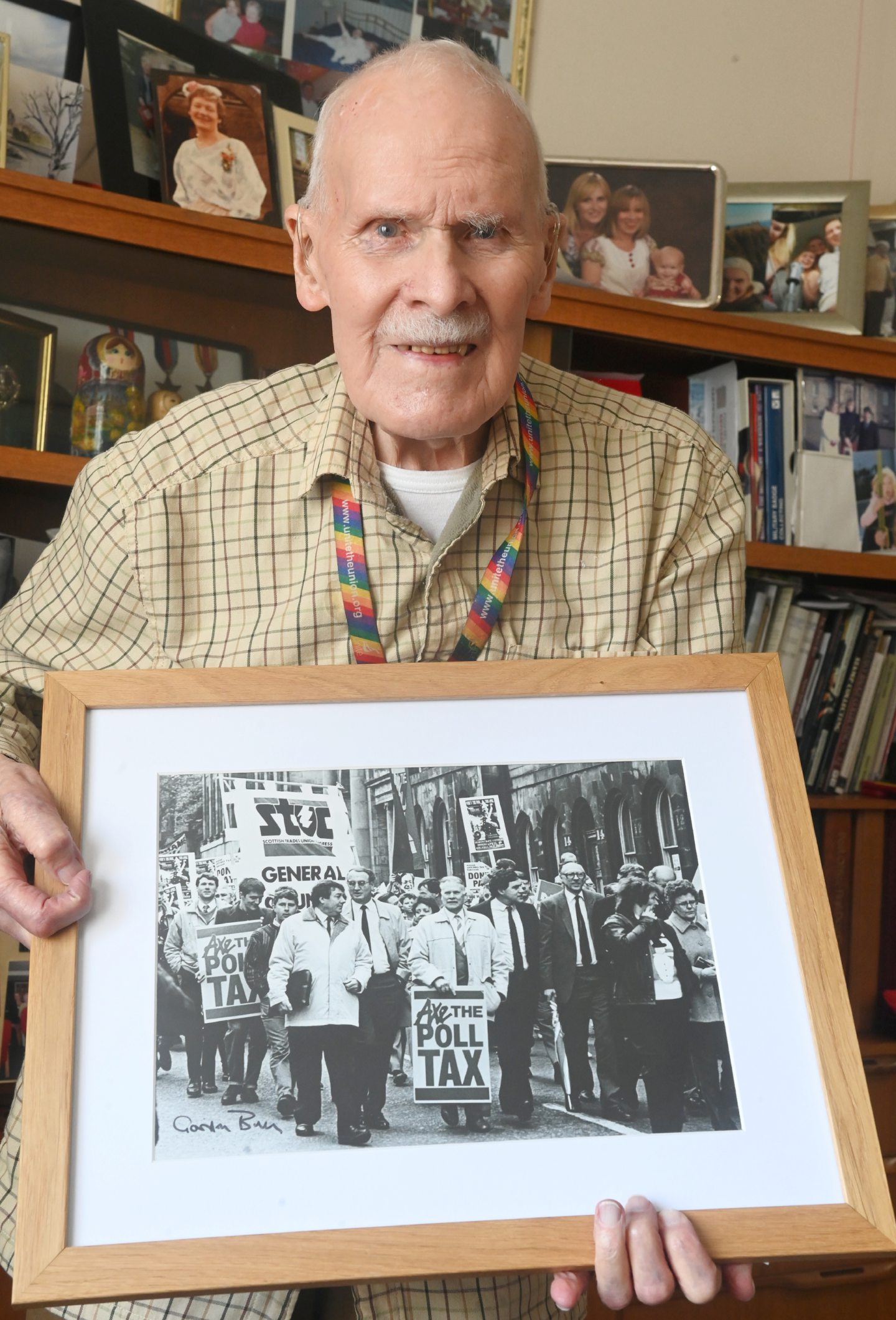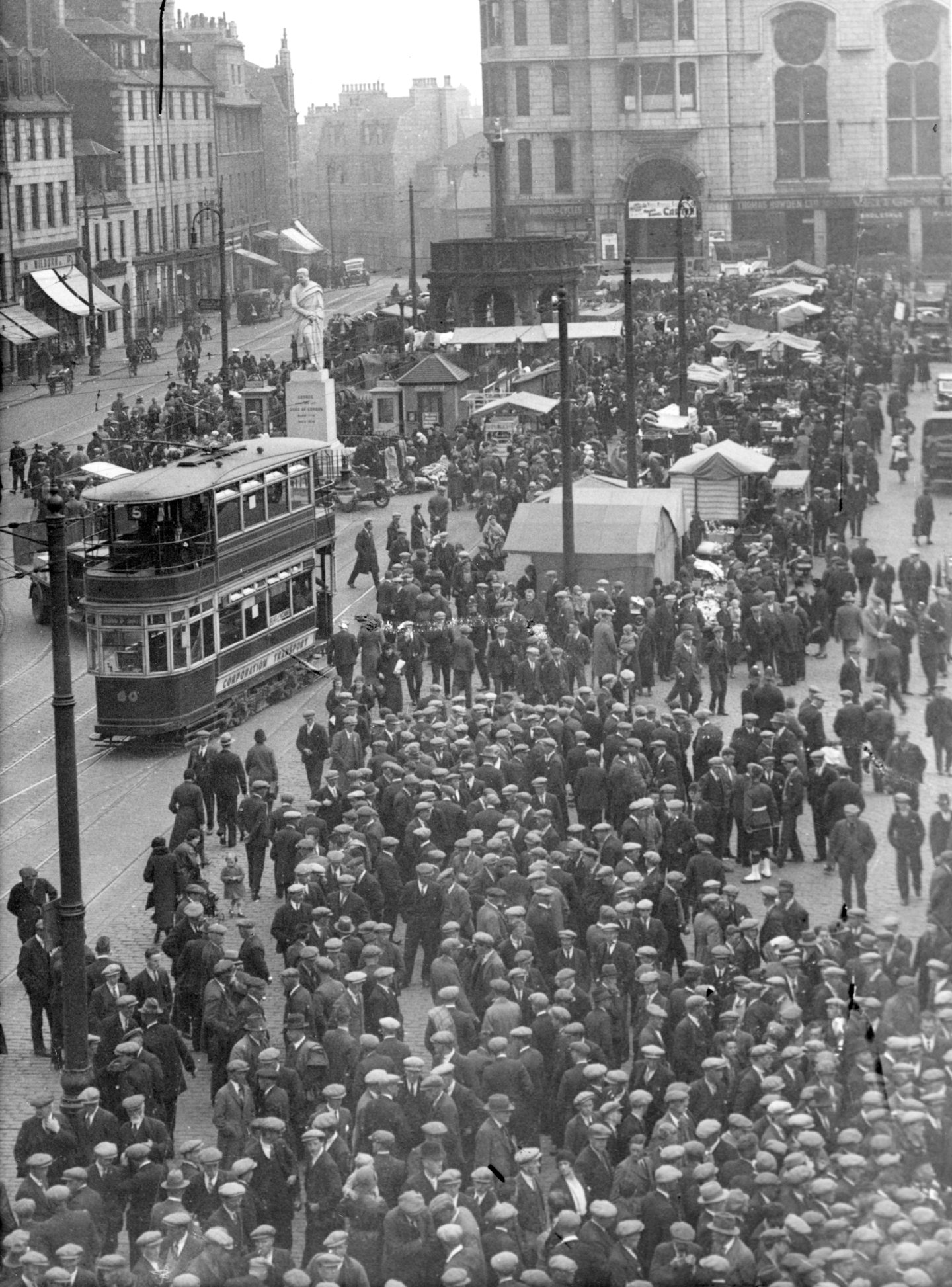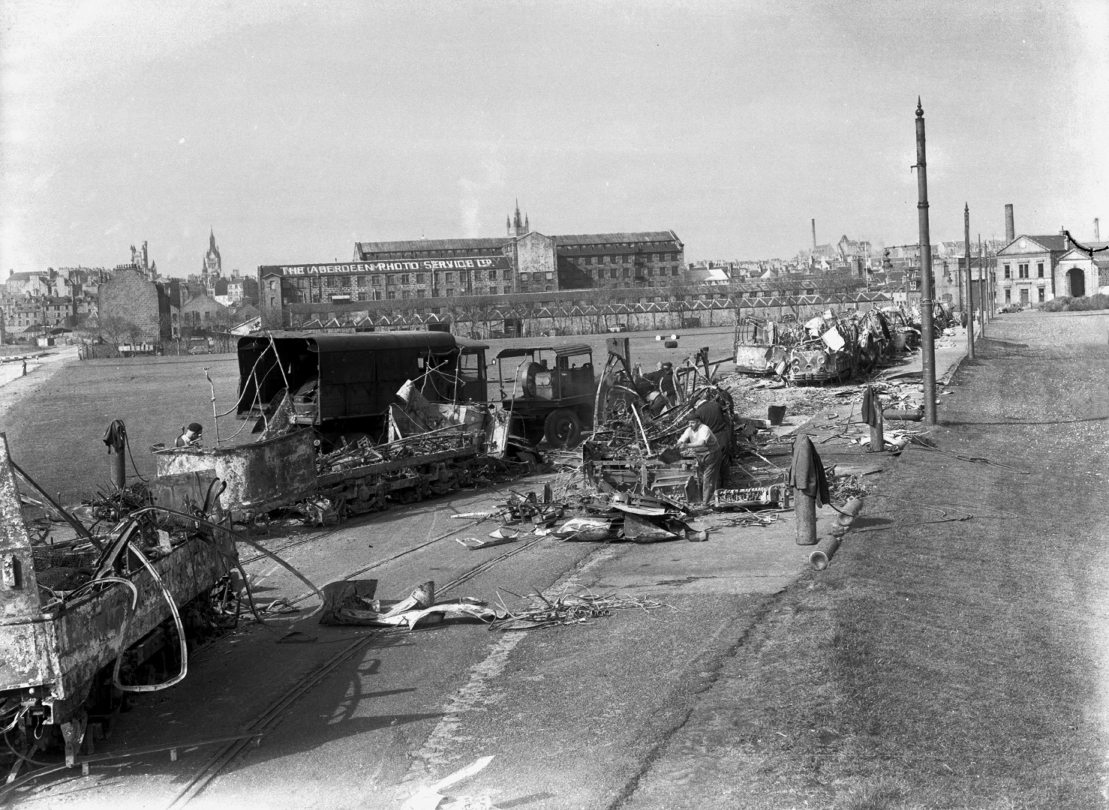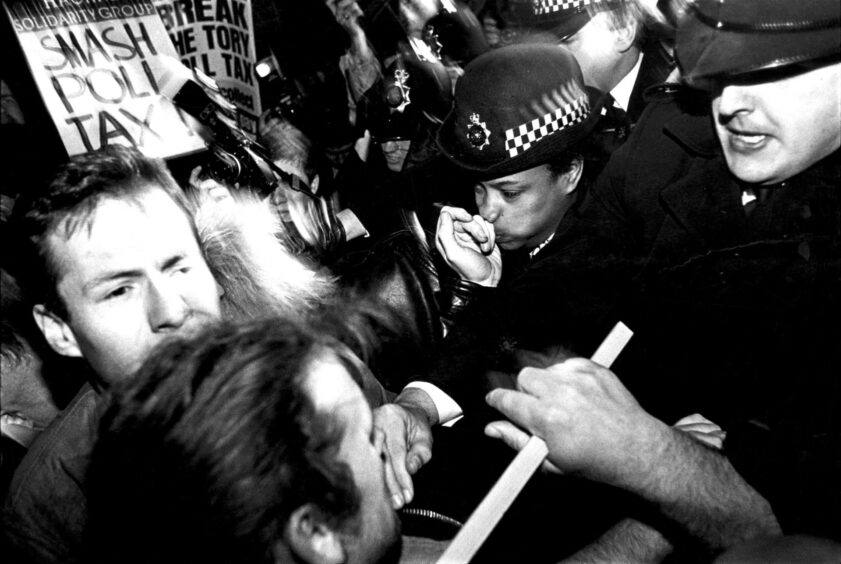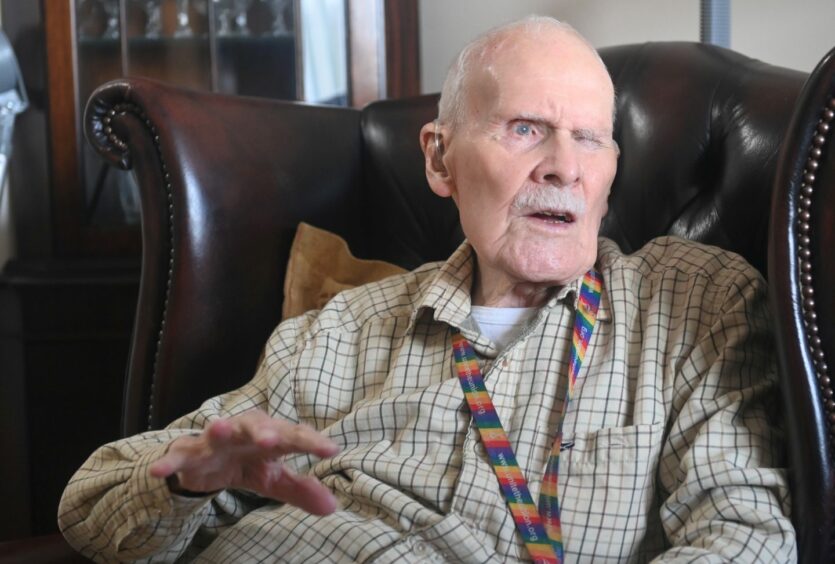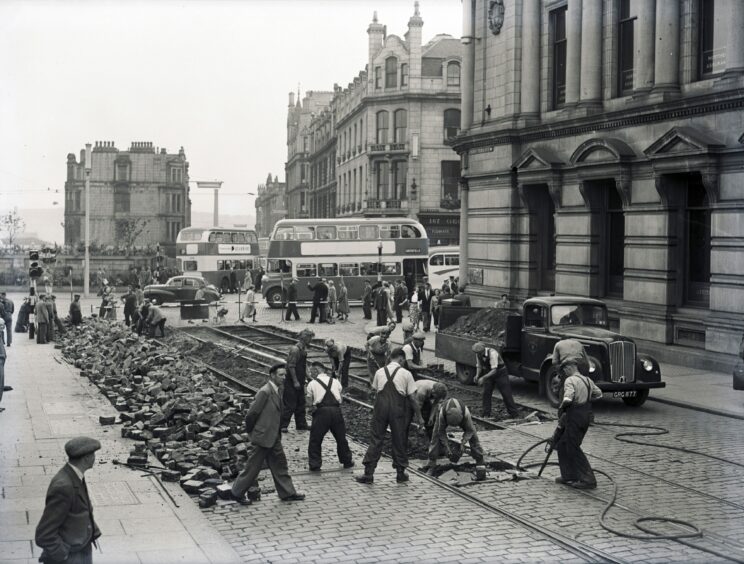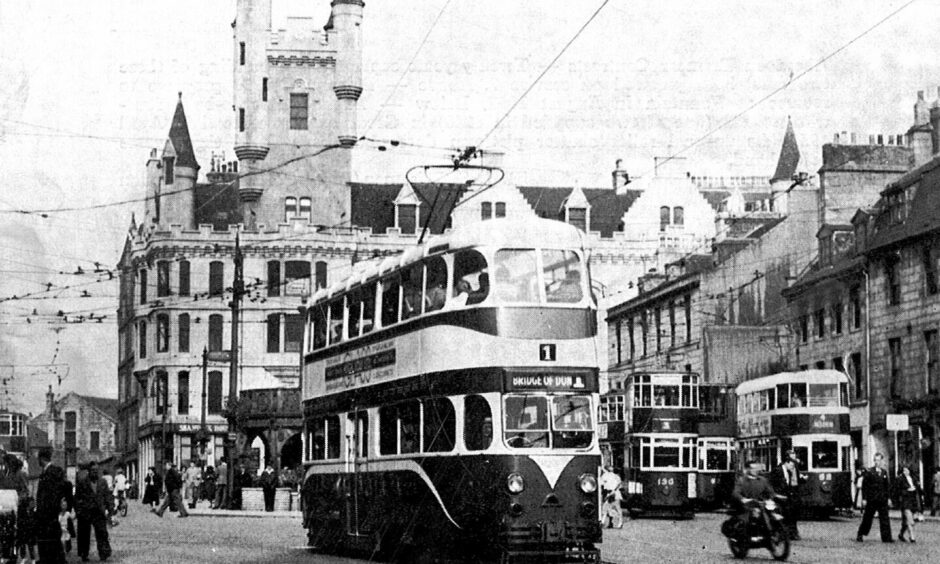
Ron Webster’s eyes still light up when he starts talking about the old days of repairing trams and making sure they whizzed around Aberdeen in the 1940s and 1950s.
He might be 95 but this remarkable fellow was surrounded by mementoes and memorabilia when I visited him in his sheltered housing accommodation this month.
There’s a picture of him involved in a protest against the community charge or “poll tax”, which caused riots and political schisms in the 1980s.
And there are souvenirs of trips he made to meet former Cuban leader Fidel Castro in Havana, where he wandered into a meeting in a suit and tie and wondered why everybody else was clad in shorts; newspaper cuttings about the time he rubbed shoulders with Nelson Mandela in Glasgow and Mikhail Gorbachev in the Granite City; and a plethora of other reminders that this proud Scot has been a stalwart trade unionist for no less than 80 years.
We weren’t there to talk about proposals, motions or block votes, though.
Instead, this was a rare opportunity to chew the fat with an intelligent, articulate and charismatic figure, somebody who poses questions rather than flinging vitriol and makes his opinions clear without ramming them down your throat.
But there was still something to think about when he mentioned quietly during our conversation: “Why is it that Aberdeen has received so much money from North Sea oil for the last 50 years and yet there are more and more food banks being set up throughout the region every month?”
‘They had the edge over buses’
It wasn’t the first time he stopped me in my tracks. But there again, while he has been on more marches and demonstrations than he cares to remember, he always seems more interested in human beings than petty point-scoring.
Which guides us back to his thoughts on trams and how they were such an integral part of Aberdeen life for so many people of his generation.
He told me: “There was something special about working and repairing the trams which ran in Aberdeen for many years.
“As a joiner, who started out as an apprentice at 14 when I joined the Amalgamated Society of Woodworkers, they were part of everyday life in the city and went to all parts.
“At the start, my work involved making parts for RAF Wellington bombers and I joined the Gordon Highlanders in 1945. But, after being demobbed, I took up the apprenticeship again and finished it working on trams.
“They definitely had the edge over buses. They were carefully created out of brass and mahogany with a genuine craftmanship and there was a quality to them you didn’t find in buses, which were just big pieces of aluminium.
“Obviously, by the 1950s, local authorities recognised that more and more people were using cars, while buses were cheaper, and there was a policy decision by councillors to get rid of trams, which I still think was a real shame.
“However, setting them alight at Aberdeen Beach (in 1958) showed how determined they were to destroy them.
“It was regarded as progress at the time but now, of course, many cities across Britain have brought them back.”
Ron wasn’t as sentimental as some about these vehicles.
Former tram clippie Annie Park couldn’t bear the thought of them being set alight and told the Evening Express after the flames had taken their toll: “It was shattering.
“You read it in the papers and you knew it was going to happen but I said to my husband: ‘I’m not going to see that’. It would have broken my heart.”
Ron, though, has other tales to tell and, as we gazed through his scrapbook, the dedication to helping others was self-evident.
Year after year, he served his city in a variety of different roles, including his spell as a Labour councillor on both Aberdeen District Council and Aberdeen City Council and, in 1989, he became the president of the Scottish Trades Union Congress.
And it was in that role, when he was in his 60s but still a force of nature, that he took to the streets again to campaign against the much-loathed poll tax, which sparked resentment and acrimony in many parts of Scotland.
He said: “We had all seen what had happened to manufacturing and the steel and coal industries and I couldn’t just sit back.
“The tax angered many of us, not least because we were being used as guinea pigs for it in Scotland. So we organised marches and it drew support from folk of all ages and backgrounds and gradually built up momentum.
“There weren’t many victories for us under (Margaret) Thatcher, and, for a while, it was one factory closing down after another – British Leyland, Gartcosh, Ravenscraig, Timex – ach, when I look back to those days, there were too many to mention.
“But we had to do what we could to find new jobs for all the people who were left unemployed. And the tax was eventually scrapped.
“The protests made a difference and it showed what could be achieved if we stuck together and put our aguments across in a sensible manner.”
There isn’t much that Ron hasn’t experienced during his life in politics and, in a matter of minutes, our conversation has switched from the Cuban missile crisis in 1962 to the ongoing conflict in Ukraine and then his unalloyed joy at the arrival of Mandela in George Square in Glasgow in 1993.
He’s not a man for hero worship, or not most of the time, but, once again, his eyes beamed at the memory of meeting the former South African president.
He told me: “Despite being in prison all those years for his beliefs, he was able to find the good in people and when he was finally released (in February 1990), it was one of the most wonderful moments of my life.
“We were all waiting for him and the song ‘Free Nelson Mandela’ (by The Specials) was blaring out on a loudspeaker as we shook his hand and, even now, nearly 30 years later, it is something I still cherish.
“He didn’t come to Aberdeen on that visit, but he was given the Freedom of the City, just as he was in Glasgow, Edinburgh and Dundee.
“And those of us who were there all felt privileged to be in his company.”
I had been invited to meet Ron by veteran trade unionist Tommy Campbell, who is making sure his comrade isn’t starved of company in the care home.
And it’s clear that he has a high regard for the old campaigner, who might not be as active as he once was but retains a mind of tack-like acuity.
He said: “It’s hard to overstate the outstanding contribution which Ron has made to campaigning for trade union rights and fighting to improve the lives of working-class people not only here in Aberdeen, but internationally.
“He has always been a vocal opponent of racism and fascism by promoting hope instead of hate. And I am proud to call him a friend.”
As a past secretary of Aberdeen Trades Union Council, Ron remains a delegate to the ATUC, representing his Unite retired members’ branch.
It was both a pleasure and a privilege to meet him.
And there’s surely a great book to be written about this north-east lad who fought for his trade union and working-class principles.
More like this:
